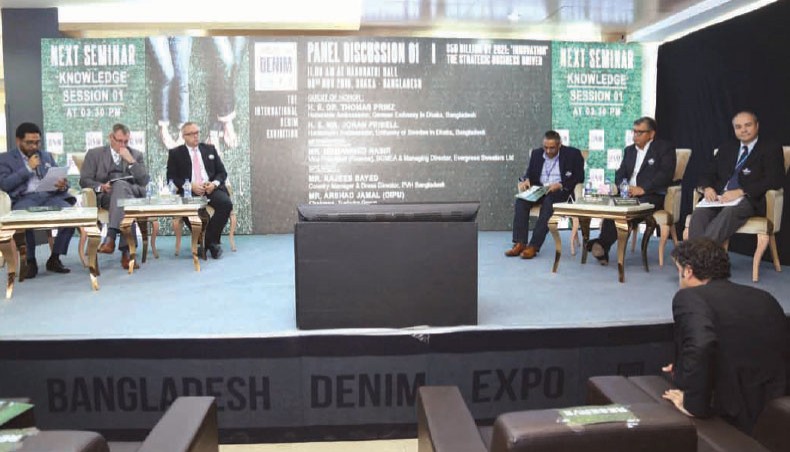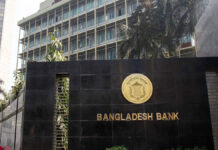Envoys advise Bangladesh at two-day Denim Expo
Swedish ambassador Johan Frisell on Tuesday said that Bangladesh should start work to devise long-term framework of a marketing strategy to gain the confidence of buyers as the trade regime would be changed after 2021 due to the graduation of the country from the least developed status.
‘Now is the time to devise the strategy for the changed trade regime. The garment entrepreneurs should show their trade regime now. Then the buyers will also set their strategies,’ the envoy said at a sideline panel discussion of Bangladesh Denim Expo on ‘$50 Billion by 2021: ‘Innovation’ The Strategic Business Driver’ at the International Convention City, Bashundhara, in Dhaka.
Frisell said that following the graduation of Bangladesh from LDC to middle income country, the duty structure would be changed for the country in the Europe and other markets.
Bangladesh should negotiate bilaterally with major markets for receiving duty benefits as the country will lose the trade benefit after graduating to a developing country, he said.
‘Bangladesh should think about the innovation of products. If there is a long-term playing field then the business would be sustainable and the international
buyers will have the confidence on them,’ Frisell said.
He said that the buyers will also have the long-term predictability which is the key to sustainability.
Today, Bangladesh’s garment enjoys duty benefit in major markets, but without strategy, a 12 per cent more duty can be levied on the products.
Buyers will also want to set their buying strategies with long-term trade regime and they want to know what would be the trade regime after the graduation to developing country.
German ambassador Thomas Prinz said that branding is extremely important for sustainability and it is time to come up with made in Bangladesh brand.
Bangladesh should think about the new products and keep on the process of compliance for sustainability of the industry, he said.
Prinz also said that the Accord is necessary even after its departure in 2018.
‘Bangladesh should not only think about productivity, but also the products should be socially and environmentally compliant,’ he said.
Najeeb Sayed, country manager of PVH Bangladesh said that marketing is very important for reaching the target of exporting $50 billion worth of apparel items by the end of 2021.
He suggested for increasing the efficiency level as the prices of garment items did not increase over the last 10 years.
Workers’ efficiency level should be increased, so that maximum production can be ensured with reduced production cost, Najeeb said.
‘We have to go beyond the given factor as the competition has grown all over the world,’ he added.
Tuomo Poutiainen, programme manager of RMG sector of the International Labour Organisation, said that skill development of the workers is important and workers also should be adaptable to habituate with the innovation and technology.
Mohammed Nasir, vice-president of Bangladesh Garment Manufacturers and Exporters Association moderated the session.
Earlier, the Cheif Executive officer of Bangladesh Denim Expo, Mustafiz Uddin inaugurated the two-day event.
A total of 54 exhibitors from 15 countries including the US, UK, Germany, Italy, France, the Netherlands, Turkey, Spain, Belgium, Sweden, Vietnam and China took part at the event which will conclude today.










